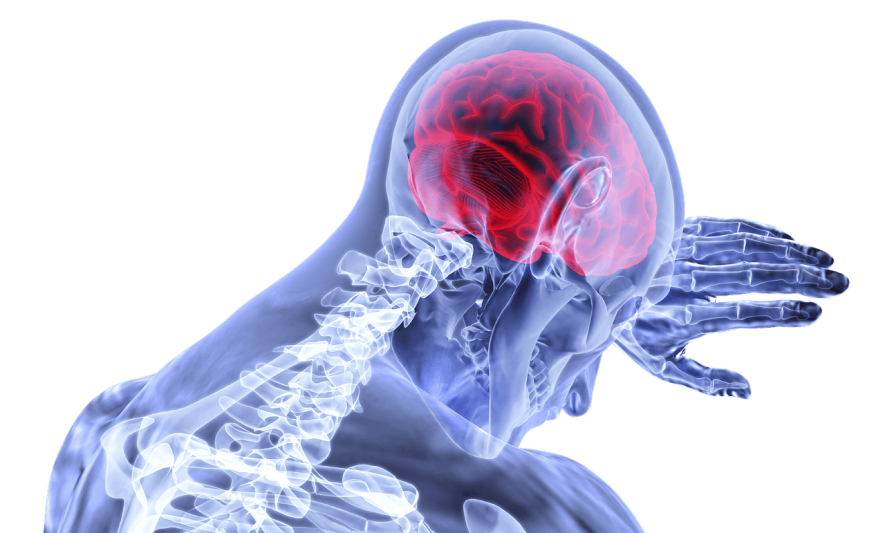New Study: Keto Zone Diet May Improve Cognition in Early Alzheimer’s
A new preliminary study has found that a ketogenic diet, like the Keto Zone Diet may improve cognition in early Alzheimer’s and those with early cognitive decline.
Whether you or a loved one is facing cognitive issues, or you’re just looking to keep your brain healthy and prevent them, this is great news!
Here’s what the study entails and the conclusions drawn on Keto Zone and cognitive decline.
Preliminary Study: Keto Zone Diet May Improve Cognition in Early Alzheimer’s
Researchers at the Johns Hopkins University School of Medicine in Baltimore, Maryland published this study in 2019 (1).
The study included 14 participants who completed the trial; 9 participants followed a modified Atkins keto diet, and 5 followed the dietary guidelines recommended by the National Institute on Aging (non-keto).
While both diets had “fair” compliance rates, the researchers were able to gather data on memory scores based on these diets.
The Results: Does The Keto Zone Diet Improve Cognition?
Within the participants who generated trace amounts of ketones on the keto diet, cognitive abilities improved significantly.
In fact, researchers found a large and statistically significant increase in participant’s Memory Composite Score between the baseline and week-6 assessment.
The keto participants also reported improved energy levels.
Keto Zone vs. Medications
This study is so promising, because current medication protocols have produced dismal results for those with early and late Alzheimer’s.
In fact, of the 413 clinical trials of new medications for Alzheimer’s disease (AD) conducted between 2002 and 2012, almost all of them have failed. Astonishingly, 99.6% of the drugs tested yielded no significant benefit.
It has almost seemed hopeless.
However, more and more, experts are leaning towards lifestyle changes over medications, targeting the route of the problem from sugars, inflammation, and diet.
How the Keto Zone Diet Affects the Brain
Ketone bodies are used as a fat-based source of energy for the brain and body, instead using glucose and carbohydrates as energy.
When you start a Keto Zone Diet, your brain will begin to burn ketones instead of carbs as fuel. In addition, the use of MCT oil powder and exogenous ketones can expedite ketone production.
Astonishingly, the usage of ketones as brain fuel has shown successful for decades to help children with epilepsy vastly reduce seizures (without medications) (2).
Now, experts believe ketones can help others disorders and diseases, as well. There’s evidence from uncontrolled clinical trials and animal studies that ketones can provide disease-modifying activity in the brain of those with Alzheimer’s disease and Parkinson’s disease.
Additionally, ketones may also protect against brain damage from traumatic brain injury and stroke (3).
For those not affected by cognitive decline, many people in ketosis report greater brain clarity, focus, and function than before.
Keto Zone Diet: Low Sugar Means Less Harm to the Brain & Body
Did you know a high sugar diet can actually hurt the brain? Although without ketones, glucose is the primary brain fuel; too much sugar is detrimental to the brain and can cause:
- Sugar Addiction
- Depression
- Memory Decline (4)
- Mood Swings
- Anxiety
- Insulin Resistance and Type 2 Diabetes (those with Type 2 Diabetes are now twice as likely to get dementia, than those without) (5)
The Keto Zone Diet: Beyond Ketones
Unlike many keto diets, the Keto Zone Diet goes beyond the status quo of low-carbs and high-fats. It promotes whole-foods, anti-inflammatory fats, vegetables, healthy proteins, and an overall anti-inflammatory lifestyle.
The Keto Zone Diet also includes recommendations for adequate sleep, intermittent fasting, faith and prayer, reduced anxiety and stress, and supplement to improve health.
All of these encompass a “healthy brain,” and healthy body lifestyle.
Preliminary Study Challenges
While the results of Johns Hopkins’ study are incredibly promising, the study still faced challenges and detractors. First, there were only 14 participants, and second, the two diets weren’t followed as closely as researchers would have liked.
Still, researchers were able to measure ketones in the urine. And then, linked results to the ketosis. The results of the study are still promising and warrants further investigation.
Bottom Line
With an increasing number of dementia cases, cognitive decline, and Alzheimer’s, we desperately need a cure. Diet may be the answer. Studies, such as the John Hopkins preliminary one, point to lifestyle, diet, and ketosis, rather than medication, as the answer. The Keto Zone Diet may improve cognition and may be the answer we need.

